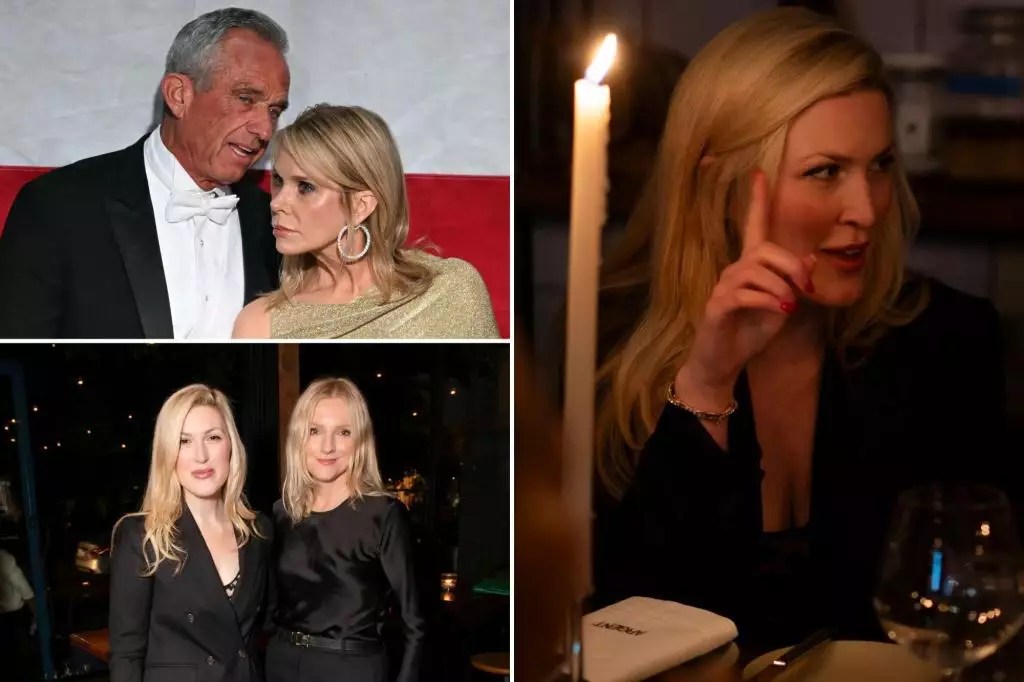The world of media and politics can often resemble a high-stakes game where public perception and private controversies intertwine. Olivia Nuzzi, a prominent political reporter, has found herself at the center of this intricate web following a highly publicized engagement and a subsequent scandal that has captured the attention of the media. Recent events have highlighted not only her fashionable appearances but also the intricacies surrounding her relationships and the repercussions of her actions in a rapidly evolving narrative.
Nuzzi’s recent public appearance at a stylish gathering in Los Angeles came on the heels of her broken engagement with Ryan Lizza, a fellow journalist. Dressed elegantly in a black suit and adorned with a diamond tennis bracelet—a token of affection from her former fiancé—Nuzzi’s presence at the event sparked intrigue. While many might assume that appearances can be misleading, sources revealed that she appeared composed and well-received by peers in the glamorous setting.
However, this façade belies a tumultuous period characterized by personal and professional backlash. Nuzzi was seen as a figure embodying both resilience and vulnerability, navigating the complex waters of public scrutiny and personally difficult circumstances. The attention to her ensemble choices served as a distraction from the deeper issues threatening her reputation and future in journalism.
Her attendance at the event was her first public outing since the sexting scandal involving Robert F. Kennedy Jr., which raised ethical questions about journalistic integrity. This incident underlined the precarious position that reporters often find themselves in, where personal indiscretions can overshadow professional accomplishments. Moreover, Nuzzi’s previous interactions on social media, including her commentary on female journalists and relationships, add layers to the discussion about the double standards that can permeate within the industry.
Despite the brewing storm, insiders reported that Nuzzi seemed to cope well under pressure. According to an anonymous attendee, she appeared “kind of OK” and had found a supportive environment in Los Angeles, a city synonymous with reinvention. This aspect of her personal narrative underscores the challenge many face when attempting to reclaim their life and identity following a public scandal.
As Nuzzi maneuvers through the implications of her romantic choices, the details surrounding her engagement and the scandal reveal much about the nature of power dynamics in relationships, particularly in high-profile contexts. Lizza’s public denial of wrongdoing juxtaposed with Nuzzi’s allegations of blackmail paints a troubling picture of a relationship marred by mistrust and exploitation. Reports of Lizza’s claims regarding Nuzzi’s past with Kennedy further complicate the narrative, suggesting that there is more at play than simple personal grievances.
This ongoing legal battle serves not merely as a fight for individual’s reputations but as a reflection of broader societal themes regarding agency, consent, and accountability. The public often gravitates toward sensational narratives, but there lies substantial importance in understanding the structures and systems that contribute to such conflicts. The implications of power and influence in this case are particularly stark, especially as both Lizza and Nuzzi occupy spaces of public interest yet confront starkly personal challenges.
The media pintpoint the complexities surrounding female representation, ethics in journalism, and personal agency within a patriarchal landscape. Some commentators speculate that Nuzzi’s predicament reveals a cultural tendency to scrutinize and shame women more harshly than their male counterparts, a notion echoed by sources who viewed the response to her scandal as particularly egregious.
As Nuzzi grapples with her personal fallout, the conversation surrounding her actions—both past and present—invites a broader dialogue about the structures of societal judgment and the inherent biases that can emerge from them. The notion that she has become a target for scrutiny, while men in similar positions often evade accountability, demands attention. Moving forward, questions of how female journalists navigate their careers in the face of scandal, relationships, and public perception remain pertinent.
As Nuzzi continues to navigate her personal storm and the public discourse surrounding her actions, her future remains an open question. Whether she can steer her career back into focus amidst the noise of scandal or whether her public persona will forever be intertwined with controversy is yet to be seen. Nuzzi’s story compels us, as an audience, to reflect critically on the narratives we subscribe to and the inherent biases that color our perceptions in the intersection of journalism, power, and personal identity.







Leave a Reply